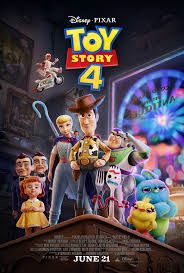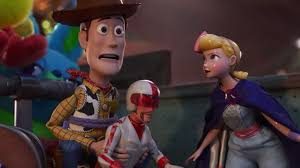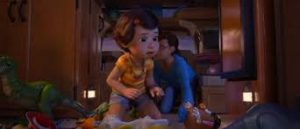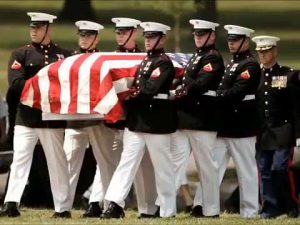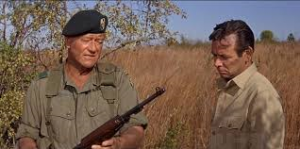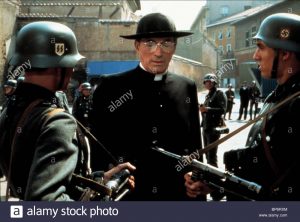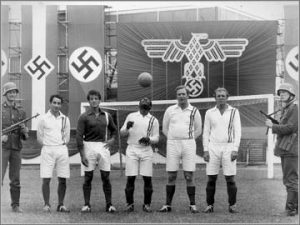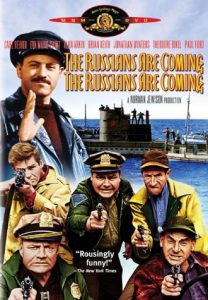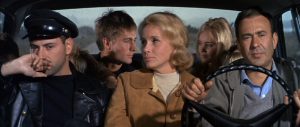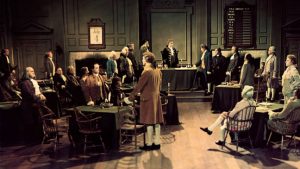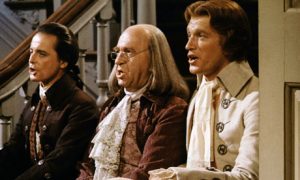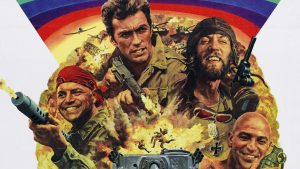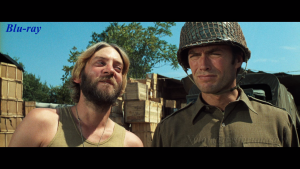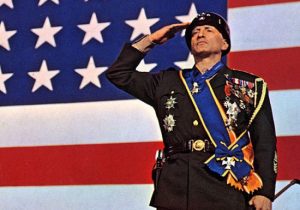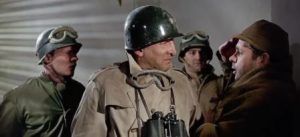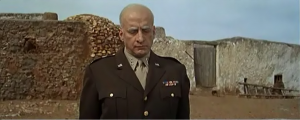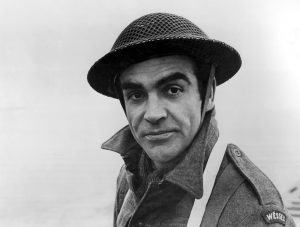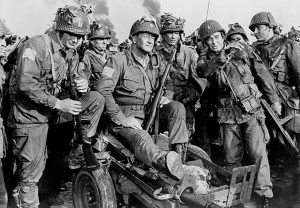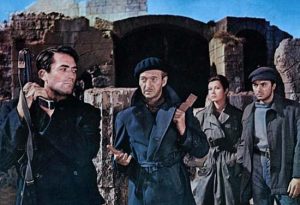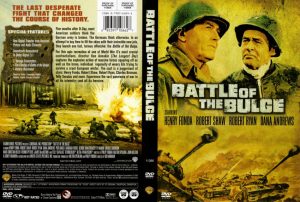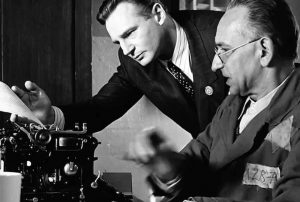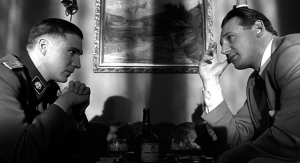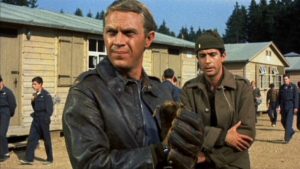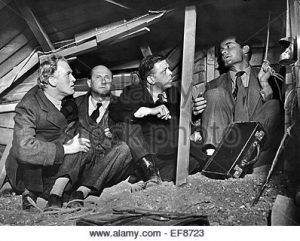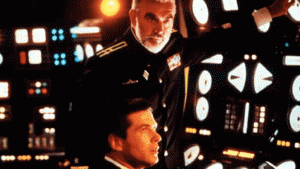SHORT TAKE:
Despite a brilliant start, clever plot, continued great acting, wonderful cameos, and magical animation, the story abandons its own raison d’etre.
Anyone can go but I can’t recommend it for the target young audience because of very dark imagery and multiple scenes of loss and childhood trauma involving being separated from one’s family and justifiable fears of a child losing her toys which could seriously distress small children. And I can’t recommend it for the older crowd because of the final message.
LONG TAKE:
SPOILERS FOR THE ENTIRE TOY STORY FRANCHISE
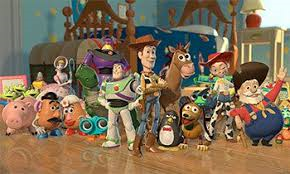 Full disclosure – this is a long post, even by my standards, but the Toy Story franchise has always been the beneficiary of some truly good writing, and the theme has always been that of family, so, it breaks my heart, but I have to make the case ….. against Toy Story 4, and that’s going to take some explaining.
Full disclosure – this is a long post, even by my standards, but the Toy Story franchise has always been the beneficiary of some truly good writing, and the theme has always been that of family, so, it breaks my heart, but I have to make the case ….. against Toy Story 4, and that’s going to take some explaining.
 In the first movie the question was the choice between ego or family, when Woody’s seniority and favorite status is threatened by Buzz Lightyear. Woody chose family by placing the needs of his fatherless owner, Andy, above his own wants and even risking his own life to rescue Buzz and incorporate Buzz into their group.
In the first movie the question was the choice between ego or family, when Woody’s seniority and favorite status is threatened by Buzz Lightyear. Woody chose family by placing the needs of his fatherless owner, Andy, above his own wants and even risking his own life to rescue Buzz and incorporate Buzz into their group.
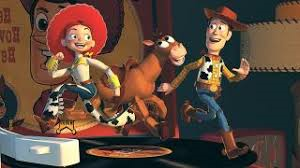 Toy Story 2 dealt with the idea of fame versus family when Woody has the opportunity to be admired from afar as a classic toy in a Japanese museum but instead chooses to return to Andy, even telling Buzz that he no longer fears Andy outgrowing him because he has the family of toys “for [sic] infinity and beyond”.
Toy Story 2 dealt with the idea of fame versus family when Woody has the opportunity to be admired from afar as a classic toy in a Japanese museum but instead chooses to return to Andy, even telling Buzz that he no longer fears Andy outgrowing him because he has the family of toys “for [sic] infinity and beyond”.
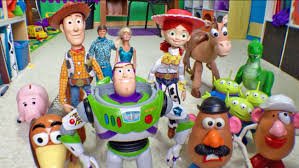 Toy Story 3 addresses the inevitable time when Andy, like Little Jackie Paper in the song “Puff the Magic Dragon”, does outgrow the magic and the toys are sent to another child.
Toy Story 3 addresses the inevitable time when Andy, like Little Jackie Paper in the song “Puff the Magic Dragon”, does outgrow the magic and the toys are sent to another child.
This latest installment also involves the issue of family.
 Aside from the amazing computer animation, the sterling voice acting of terrific actors, the astonishingly complex characters, the jokes both obvious and inside which parents and even the youngest can understand on a variety of levels and the complex and interesting plot lines,
Aside from the amazing computer animation, the sterling voice acting of terrific actors, the astonishingly complex characters, the jokes both obvious and inside which parents and even the youngest can understand on a variety of levels and the complex and interesting plot lines, 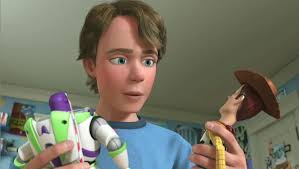 the real brilliance of the films has always been that the stories are really about parenthood – selflessly being there when your child needs you, even if they don’t know they do, even if you do it knowing the goal is for them to eventually not need you any more.
the real brilliance of the films has always been that the stories are really about parenthood – selflessly being there when your child needs you, even if they don’t know they do, even if you do it knowing the goal is for them to eventually not need you any more.
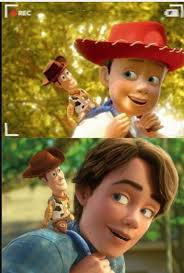 To be a good parent one must choose their children’s happiness, safety and sense of security over the expediences of the parents’ own wants, desires and even needs.
To be a good parent one must choose their children’s happiness, safety and sense of security over the expediences of the parents’ own wants, desires and even needs. 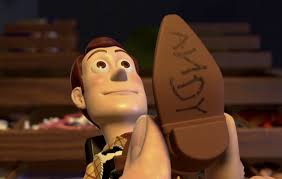 Woody, the de facto Dad in each of the movies, chooses to protect his toy family for the benefit of his child. And this is the way to which the ownership is referred – that the toy has a child, which is always viewed as the ultimate and Xanadu of existence for any toy. And the lack of a child is always seen as a tragic circumstance and even one which can, like Lotso or Stinky Pete, lead to a bitter expression of their baser and negative personality traits.
Woody, the de facto Dad in each of the movies, chooses to protect his toy family for the benefit of his child. And this is the way to which the ownership is referred – that the toy has a child, which is always viewed as the ultimate and Xanadu of existence for any toy. And the lack of a child is always seen as a tragic circumstance and even one which can, like Lotso or Stinky Pete, lead to a bitter expression of their baser and negative personality traits.
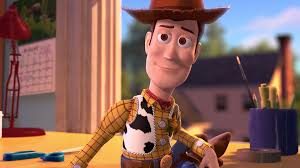 Woody chooses to share the lime light in the first, to forego fame in the second, and accept when his child no longer needs him but accepts the responsibilities of another child who does in the third.
Woody chooses to share the lime light in the first, to forego fame in the second, and accept when his child no longer needs him but accepts the responsibilities of another child who does in the third.
MAJOR SPOILERS FOR TOY STORY 4 – SEROUSLY I AM GOING TO BE DISCUSSING THE ENDING SO IF YOU HAVE NOT SEEN IT YET AND WANT TO LET THE STORY UNVEIL ITSELF IN THE MOVIE THEATER PLEASE BAIL OUT NOW.
ALSO SPOILERS BY IMPLICATION FOR IMPORTANT PLOT POINTS IN PETER PAN, LION KING, ALADDIN AND STAR WARS – A NEW HOPE.
OK FAIR WARNING WAS GIVEN
FIRST – THE GOOD STUFF
While I have rarely seen a franchise manage the same quality throughout all of its films, Back to the Future being the only one that springs to mind at the moment, Toy Story seemed to conquer that artistic challenge with grace and a strong sense of its own universe. The writers respect these characters and recognize the intricate personalities of each toy, especially the major players. Each has flaws and virtues. None are treated as black and white. They are very recognizably 3D humans. Part of the magic of these stories is that everyone in the audience, including the adults, can find a toy with which to identify, just as any child can, in real life, find a toy which speaks to them out of a well stocked toy box. And the one overarching and abiding principle which has provided the strength of backbone to all of the stories is that their child means everything to the toys about whom the tale is woven.
Toy Story 4 is no exception. At least not at first and not for most of the movie. Woody steps aside as Jessie and other toys are regularly chosen as playmates over him because that is what Bonnie wants. He is the only one who recognizes Bonnie’s need for a champion and secret guardian when she is taken to kindergarten for orientation. Not even her parents apparently fully wish to understand that the little girl is too young to be left at an institution when she is devastated by her separation from home. Woody sneaks into her backpack and secretly assists her throughout the day, proving abundantly that he was right. Woody then steps up to promote a “toy” given life by Bonnie’s imagination and love which is made from a spork and some art supplies. 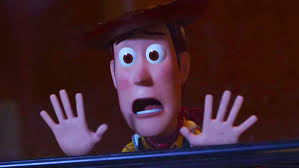 Forky’s determination to be trash instead and his constant attempts to throw himself away are played for laughs and every parent who has had to deal with a self-destructive toddler (but I repeat myself) understands what Woody is up against.
Forky’s determination to be trash instead and his constant attempts to throw himself away are played for laughs and every parent who has had to deal with a self-destructive toddler (but I repeat myself) understands what Woody is up against.
And for anyone who has raised a child to adulthood, Woody’s consistent leadership, even when not wanted, and loyalty even when not appreciated, are part of the definition of true parenthood. You want kids to grow up and not need you any more but it is a painful process. In Woody’s case Bonnie still needs him but doesn’t even know it.
They have brought to the acting table all of the previous actors:  Tom Hanks as Woody,
Tom Hanks as Woody,  Tim Allen is Buzz Lightyear,
Tim Allen is Buzz Lightyear, 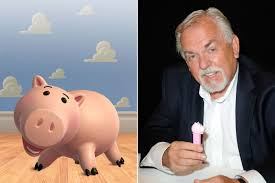 the ubiquitous Ratzenberger as Hamm,
the ubiquitous Ratzenberger as Hamm,  Wally Shawn as Rex,
Wally Shawn as Rex, 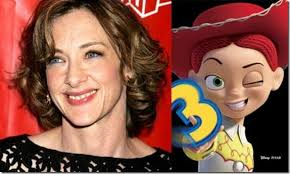 Joan Cusack as Jessie,
Joan Cusack as Jessie, 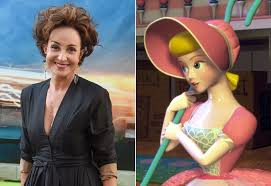 Annie Potts as Bo Peep,
Annie Potts as Bo Peep, 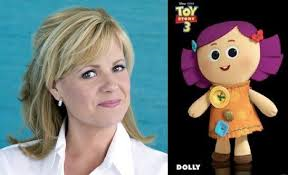 Bonnie Hunt as Dolly, and even,
Bonnie Hunt as Dolly, and even, 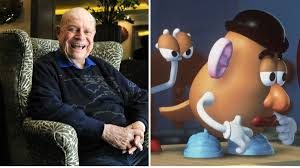 using posthumous archival clips, the late Don Rickles as Mr. Potato Head, even dedicating the film to his memory. And in a delightful spate of celebrity castings they have added: TV legend
using posthumous archival clips, the late Don Rickles as Mr. Potato Head, even dedicating the film to his memory. And in a delightful spate of celebrity castings they have added: TV legend 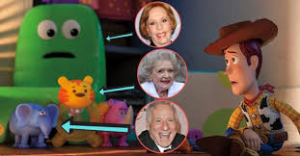 Carol Burnett in a small part as a talking child’s chair named Chairol Burnett, the one and only incredible Mel Brooks as Meliphant Brooks, and Betty White as Bitey White,
Carol Burnett in a small part as a talking child’s chair named Chairol Burnett, the one and only incredible Mel Brooks as Meliphant Brooks, and Betty White as Bitey White, 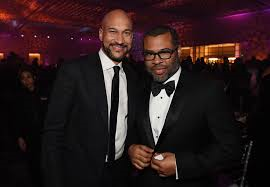 the infamous web-short duo of Key and (Academy Award winning) Peele as
the infamous web-short duo of Key and (Academy Award winning) Peele as 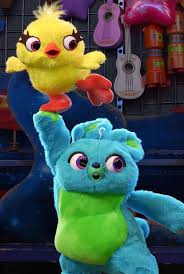 Ducky and Bunny,
Ducky and Bunny, 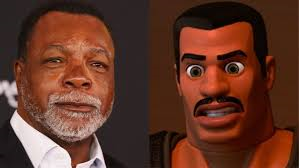 Carl “Apollo Creed” Weathers as three action adventure versions of Combat Carl (possibly take-offs of real toys based on his role in Predator),
Carl “Apollo Creed” Weathers as three action adventure versions of Combat Carl (possibly take-offs of real toys based on his role in Predator), 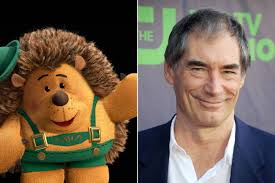 the Shakespearean actor and former James Bond Timothy Dalton in a reprising role as Mr. Pricklepants,
the Shakespearean actor and former James Bond Timothy Dalton in a reprising role as Mr. Pricklepants, 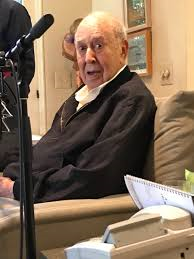 Carl “basically invented TV sitcoms” Reiner as the little pink
Carl “basically invented TV sitcoms” Reiner as the little pink 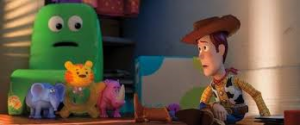 Carl Reinerocerous , and
Carl Reinerocerous , and 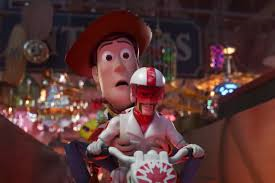 saving the most surprsing for laughs –
saving the most surprsing for laughs – 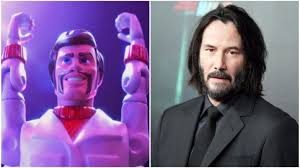 Keanu “John Wick” Reeves as Duke Caboom – a Canadian based (in honor of Reeves home country) daredevil toy.
Keanu “John Wick” Reeves as Duke Caboom – a Canadian based (in honor of Reeves home country) daredevil toy.
As a small digression: for anyone who has read my review of John Wick will note, I have mentioned that, despite Reeves omnipresence in bloody action flicks might otherwise suggest, Reeves calling is comedian – and if this stint as the voice of the wheelie posturing motorcyclist doesn’t prove that, then not even Bill and Ted could.
NOW THE BAD – TO BEGIN WITH IT IS VERY DARK AND CREEPY
I wish I could tell you that the film makers took this final installment to the Toy Story adventure to a brilliant conclusion… AND THEY WERE sooooooo CLOSE… but in truth they stumbled and fell badly at the finish line – or perhaps it would be more accurate to say they just quit the race altogether.
 I won’t reveal the details of the plot journey in THIS part of the post, except to say this is a darker movie than the others. Even Toy Story 3 with the accidental abandonment of the toys and Lotso’s dystopian nursery is not as unsettling as Toy Story 4.
I won’t reveal the details of the plot journey in THIS part of the post, except to say this is a darker movie than the others. Even Toy Story 3 with the accidental abandonment of the toys and Lotso’s dystopian nursery is not as unsettling as Toy Story 4. 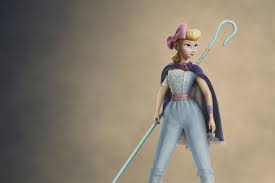 Bo Peep reemerges but her porcelein arms have been broken, are held on by tape and occasionally fall off. Some time is spent in an antique store which might as well have been labeled “Haunted House” from the toys’ point of view.
Bo Peep reemerges but her porcelein arms have been broken, are held on by tape and occasionally fall off. Some time is spent in an antique store which might as well have been labeled “Haunted House” from the toys’ point of view.  A band of shuffling, very creepy, perpetually smiling, voiceless ventriolquist dolls protect,
A band of shuffling, very creepy, perpetually smiling, voiceless ventriolquist dolls protect, 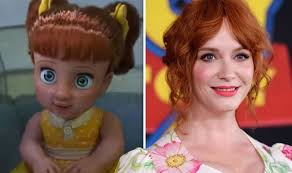 Gabby Gabby (Christina Hendricks) the nemesis, providing jump scares and kidnapping and assaulting different characters. Worse, Bonnie is beset almost the entire film with having to face loss. Loss of her home to kindergarten, loss of security as the other children treat her with casual indifference and her teacher does nothing about it;
Gabby Gabby (Christina Hendricks) the nemesis, providing jump scares and kidnapping and assaulting different characters. Worse, Bonnie is beset almost the entire film with having to face loss. Loss of her home to kindergarten, loss of security as the other children treat her with casual indifference and her teacher does nothing about it; 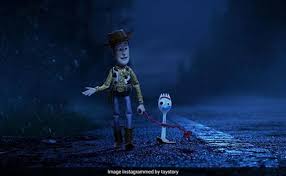 constant and repeated episodes of losing Forky, a traumatic (and I mean for the observing audience as well) scene where she is beside herself over Forky’s disappearance on a trip.
constant and repeated episodes of losing Forky, a traumatic (and I mean for the observing audience as well) scene where she is beside herself over Forky’s disappearance on a trip.
I HOPE YOU’RE SITTING DOWN, BUT WOODY — LEAVES — HIS CHILD
But the darkest parts of this Toy Story is Woody’s decision to become a “lost toy”. By choice.
Our younger son who went with us, an adult now, but a child when the first one came out, mentioned he was glad they had not gone to the well again of making another toy the “bad guy” as they had done with both Toy Stories 2 and 3 with Stinky Pete and Lotso, respectively. In retrospect, I’m afraid he was wrong. And I’m not talking about Gabby who ultimately repents, but  Bo Peep. like the song about the temptress Lola in Damn Yankees, whatever Bo wants she gets and Woody, little man, she wants you.
Bo Peep. like the song about the temptress Lola in Damn Yankees, whatever Bo wants she gets and Woody, little man, she wants you.
Bo even expresses bitterness at having never truly been played with but ultimately rejected and discarded as an eventually unneeded nightlight. She shows her true colors in the opening scene of TS4, in a flashback event which took place nine years before, (and retroactively explains why Bo was not in Toy Story 3), when she tries to get Woody to abandon Andy, when Andy was still just a little boy. Woody wisely resists the temptation and stays with his child. But Bo finally gets her revenge through Bonnie, by enticing Woody to abandon his sworn responsibilities to Bonnie, his child now, to run off with her. It is a stunningly sad epitaph describing the fall of a once noble character.
The narrator in a famous Bruce Springsteen song defiantly declares: “Got a wife and kids in Baltimore, Jack, I went out for a ride and I never went back….” This is all we need to know about this manure ball – that he abandoned his family because he had a “hungry heart”. Sorry, but that’s a pathetic reason to turn your back on your kids – your KIDS! Never mind breaking the most important oath he will ever make – to his wife. This is an evil perpetrated that can never be fully healed.
In the end, and contrary to everything that has gone before in all four movies,  Woody walks away from his heretofore all important vocation of being his child’s toy in order to stay with Bo Peep. Bonnie, his child, has not given him up. She plays with him sometimes, knows he’s around, obviously needs him whether she knows it or not, and will eventually realize he is gone.
Woody walks away from his heretofore all important vocation of being his child’s toy in order to stay with Bo Peep. Bonnie, his child, has not given him up. She plays with him sometimes, knows he’s around, obviously needs him whether she knows it or not, and will eventually realize he is gone.
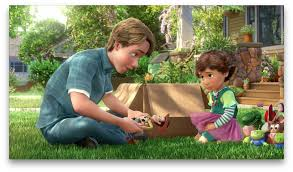 In the somewhat realistic universe in which the Toy Story characters exist it is even possible that Andy, who gave Woody up with great reluctance at the end of Toy Story 3 and then only because he thought Bonnie loved Woody so much, that Andy might one day find out that Woody has been lost. So Woody’s abandonment of Bonnie is a betrayal not just of Bonnie but of Andy as well.
In the somewhat realistic universe in which the Toy Story characters exist it is even possible that Andy, who gave Woody up with great reluctance at the end of Toy Story 3 and then only because he thought Bonnie loved Woody so much, that Andy might one day find out that Woody has been lost. So Woody’s abandonment of Bonnie is a betrayal not just of Bonnie but of Andy as well.
ALSO also, the toys live in a background of realism where their actions did effect the humans around them. Al from Al’s Toy Barn, for example, ended up near bankruptcy when he lost his valuable toys – but could be seen to deserve it because he had stolen Woody. Bonnie’s parents are stopped by the police when the van they are driving moves erratically because of toy hi-jinx. So, when in the end of TS4 the mission of Woody, Bo and company seems to be stealing from carnival barkers to give toys they do not own to children, this has a disastrous effect on the humans. From the horrified expression of the game attendant on which this scheme was perpetrated, this was not a good thing. His stall would not survive long and he might even be accused of stealing the merchandise himself.
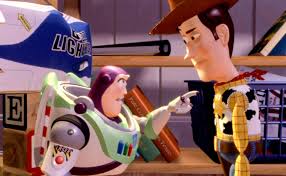 If Toy Story is a reminder to parents to not let their ego get in the way of being good parents, if
If Toy Story is a reminder to parents to not let their ego get in the way of being good parents, if 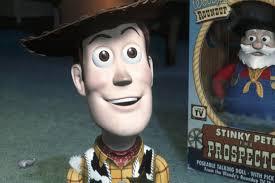 Toy Story 2 is a reminder not to let the lure of fame and attraction of money (presumably representing one’s job) keep them from being there for their kids, and if
Toy Story 2 is a reminder not to let the lure of fame and attraction of money (presumably representing one’s job) keep them from being there for their kids, and if 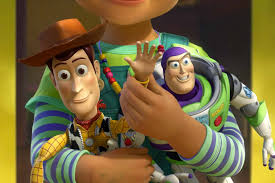 Toy Story 3 is a reminder to parents that one day they will have to take a step back and let their kids grow up but perhaps parent (read grandparent) a new generation , then what exactly is
Toy Story 3 is a reminder to parents that one day they will have to take a step back and let their kids grow up but perhaps parent (read grandparent) a new generation , then what exactly is  Toy Story 4 trying to tell us?
Toy Story 4 trying to tell us?
AN EXCUSE FOR THE ABANDONING, DEAD BEAT PARENT
Are the Toy Story 4 film makers saying one should put personal romantic attachments ahead of their family? Is this a subtle message to imply that a Dad who abandons his responsibilities for a girl friend is OK? Is this finally, an attempt at justifying behavior of the actual Hollywood culture which is responsible for the creation of this franchise, to say that it is acceptable to leave their children behind like goose droppings or unwanted furniture for a selfish fling? Yes, Bo Peep is an old friend, but this is still not reasonable. Woody’s behavior in the final moments of this four movie franchise flies in the face of everything Woody has said, done and believed up to now INCLUDING what he has said in this very movie – that a toy’s most noble cause and purpose is to help their child. Instead Woody, in a completely unexpected 180 degree turn around ABANDONS his child, who is still a little girl demonstrably in need of his aid, even if it is behind the scenes, for Bo Peep, a now wild toy who he has not seen for 9 years.
This is, frankly, an appalling and disappointing break in an established noble character – What if Simba had decided to stay in his comfy hobo existence? What if Wendy had chosen to not leave Neverland with her brothers? What if Aladdin had decided to tuck Genie back into his lamp for a rainy day? I know I’m crossing universes here but Disney will eventually own everything, so what if Han had decided to book it out of town with the gold in the first Star Wars and never come back?
What if Woody left his child?
The Woody we know would not leave Bonnie. But he does. It’s a shame that the Toy Story franchise had to end with a tag line that should have read: And so Bonnie lived precariously, never knowing what loss she would suffer next … ever after.
WOODY LOSES HIS CONSCIENCE
Now all this being said, my husband made a VERY interesting point. A lot of rather clever and playful reference is made about one’s conscience. Woody understands the abstract concept well but when trying to explain it to Buzz, Buzz mistakes it for his pre-programmed sayings, which actually end up being very appropriate. This was actually quite a cute way to broach this ethereal topic for a very young crowd and amuse the older people at the same time. Woody’s pre-programmed voice box works perfectly, but the voice box of 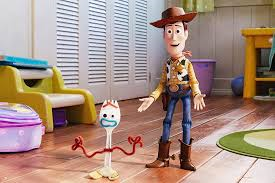
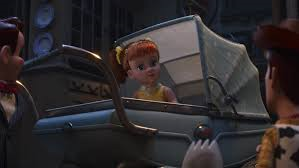 Gabby Gabby, the antagonist, does not – because she was manufactured incorrectly.
Gabby Gabby, the antagonist, does not – because she was manufactured incorrectly.
Before the exchange near the end of the movie in order to save Forky, Woody’s spiritual conscience works with selfless clarity of purpose, while Gabby’s behavior stems from a desperate selfishness born of loneliness and a sense of never experiencing what non-defective dolls get – unconditional love (her appropriately used term).
AFTER the transplant, though we never hear the defective version of Woody’s pre-programmed “inner voice”, we get to hear Gabby’s now much improved inner, pull string, voice. So we know the exchange was made, with Woody getting Gabby’s flawed “inner voice”.
We quickly see a subtle but significant change in behavior. Gabby gives up a sure home to risk helping a lost child, while Woody … chooses the vagabond life of a “lost” toy to be with his “honey,” 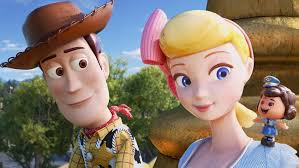 Bo Peep, abandoning his fellow toys and Bonnie, the little girl who is SELF-DESCRIBED AS HIS CHILD. It used to be considered an abominably shameful thing to turn your back on the spouse to whom you promised fidelity and the child you produced, in order to engage in selfish pursuits.
Bo Peep, abandoning his fellow toys and Bonnie, the little girl who is SELF-DESCRIBED AS HIS CHILD. It used to be considered an abominably shameful thing to turn your back on the spouse to whom you promised fidelity and the child you produced, in order to engage in selfish pursuits. 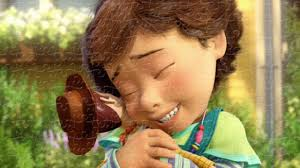 Now, tragically, it is applauded and the children left behind are treated like old furniture at a garage sale to be shuffled to whomever might still want them.
Now, tragically, it is applauded and the children left behind are treated like old furniture at a garage sale to be shuffled to whomever might still want them.
IS TOY STORY NOW ADVOCATING IN FAVOR OF THE DIVORCE CULTURE ?
For more information on the devastation that divorce leaves, even decades later to adult children of divorced parents, you can buy at the Ruth Institute or READ ONLINE FOR FREE HERE THROUGH AMAZON KINDLE, a copy of Leila Millers’s Primal Loss – The Now Adult Children of Divorce Speak.
And where were Jessie and Buzz? I can not fathom why the writers think we would accept either of them letting Woody go. But it fits in with the popular divorce routine where all the adult friends are supposed to rally around the abandoning parent and encourage them to “follow their heart”. I think if I hear that phrase used to justify another self-indulgently destructive behavior in a movie I’m going to stand up right there in the theater and scream in frustration. While they do not actually SAY it in TS4 Woody certainly DOES it.
Were the film makers saying they think it is OK to justify the “divorce” culture dad who leaves his child to start a new life with another woman (or less frequently but just as horrible, wife who leaves to be with another man) and we’re all supposed to be OK with it? OR – is this a subtle remonstration that those who behave in such a cruelly callous, irresponsible and self indulgent manner have broken inner voices – defective consciences? If the latter, it wasn’t nearly made clear enough … perhaps because the writers were afraid to ruffle a few feathers whose plumage was way too close to the guilty fire on this one.
I’m more than a little confused so can only imagine the perplexing message being conveyed to the youngest members of the family to whom these movies are primarily aimed.
The Toy Story we know and loved might have allowed Woody to be tempted but one of his most trusted confidantes would have slapped him, questioned his sanity, and made Woody recognize what a terrible mistake he was making. THAT would have been a good and fitting ending to this franchise. Anyone can be tempted. Even Jesus was tempted in the desert. It is what we fallen creatures do in the face of that temptation which separates the wheat from the chaff. And the film makers tossed every bit of good will the audience had invested in this character into the wind.
I would rather have seen Woody destroyed or fade into inanimacy from Bonnie’s loss of interest than see him betray everything for which he was created, everything he espoused and every principle he upheld for the last 24 years through the first three and most of this fourth movie.
The writers, lead by John Lasseter and Andrew Stanton, had so much going into this movie: a rich treasure of talent, an invested audience, well developed characters and plot back ground, and they gave it all away for a potage of politically correct propaganda to help justify succumbing to the lure of romantic adventure at the expense of a small trusting child. Shame on them.
